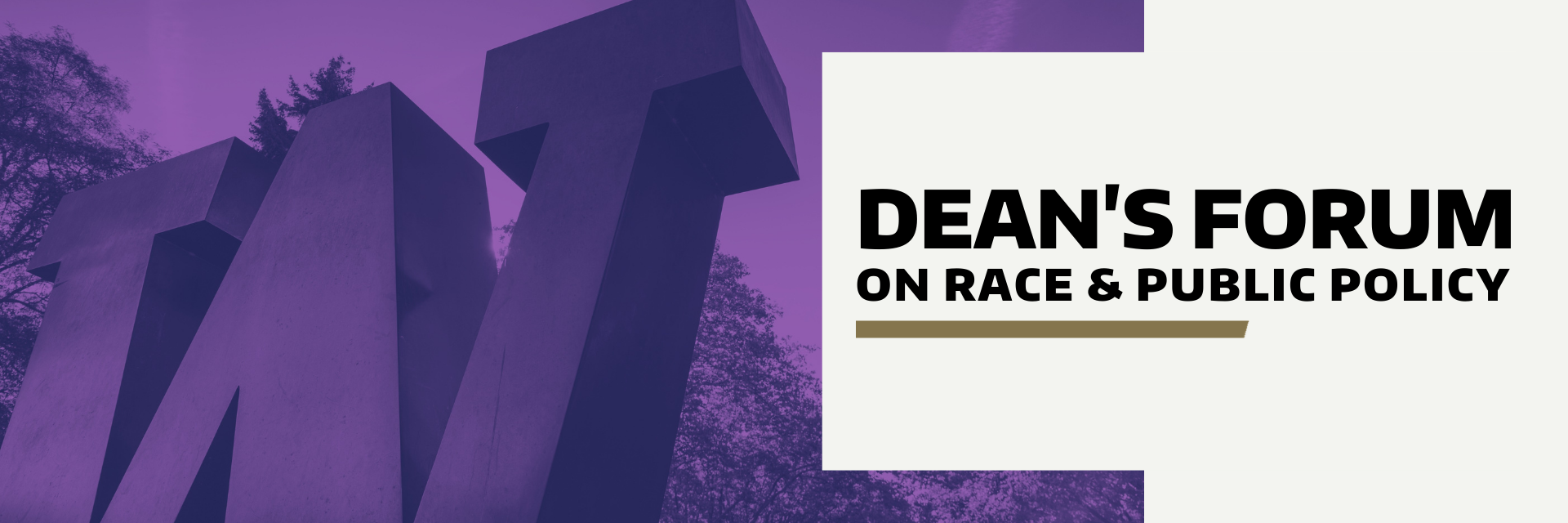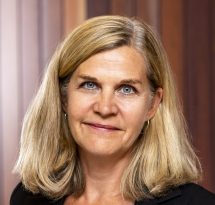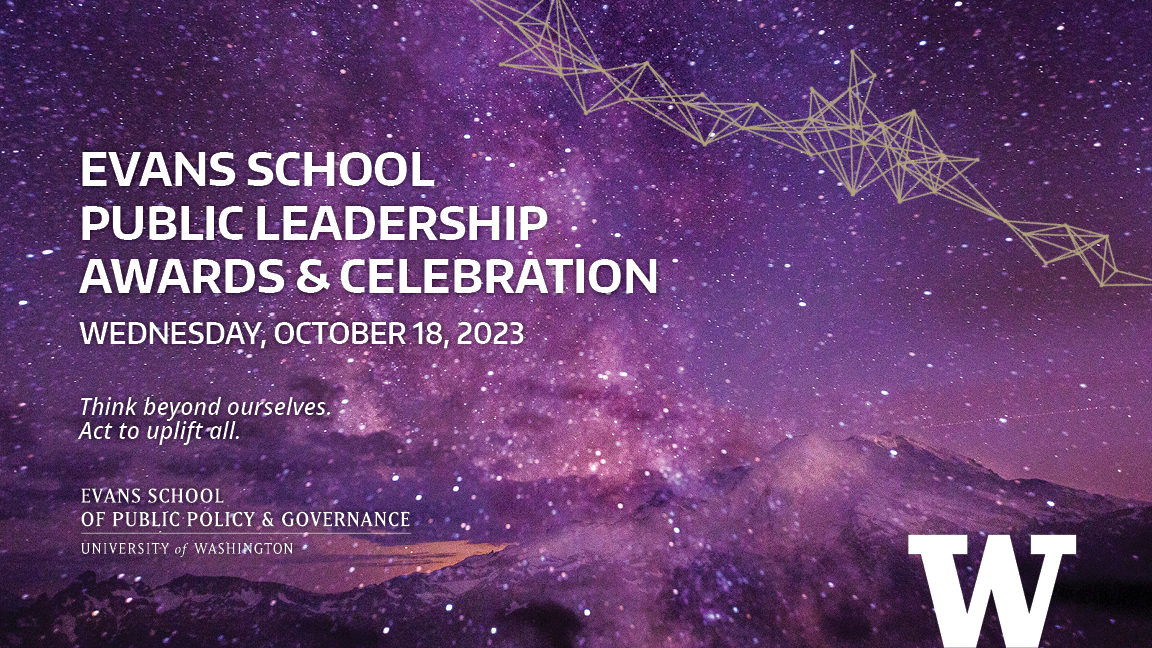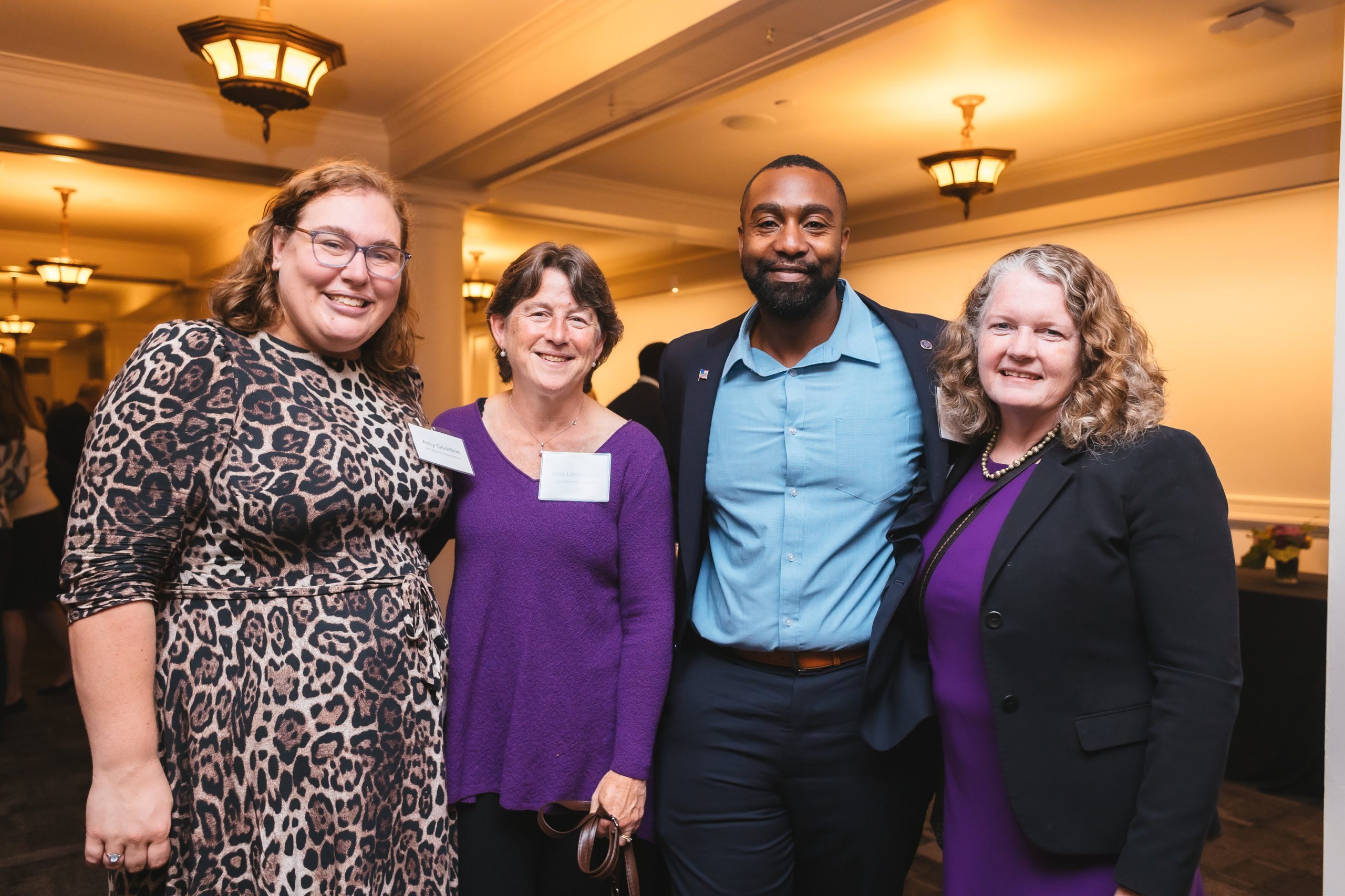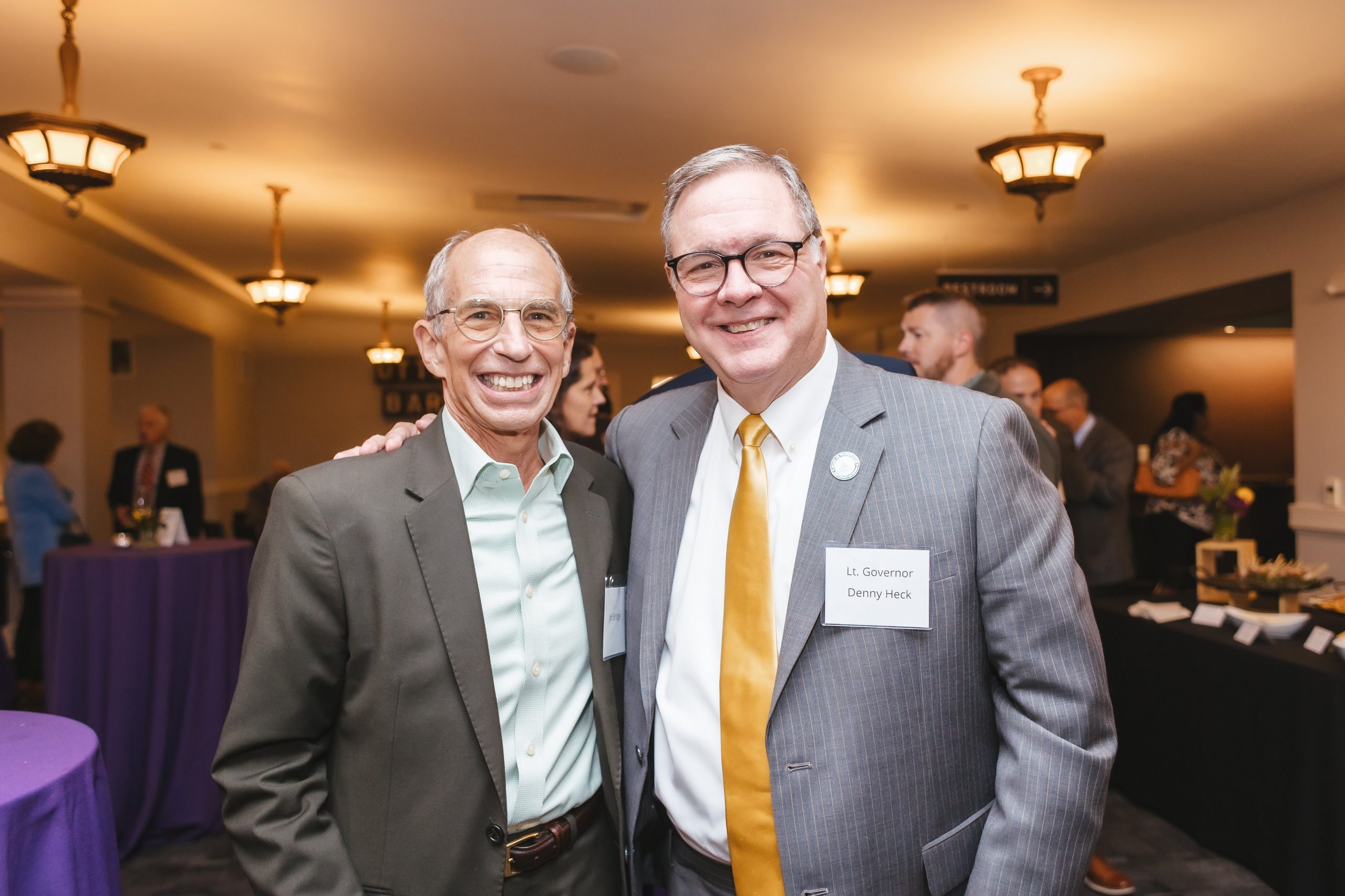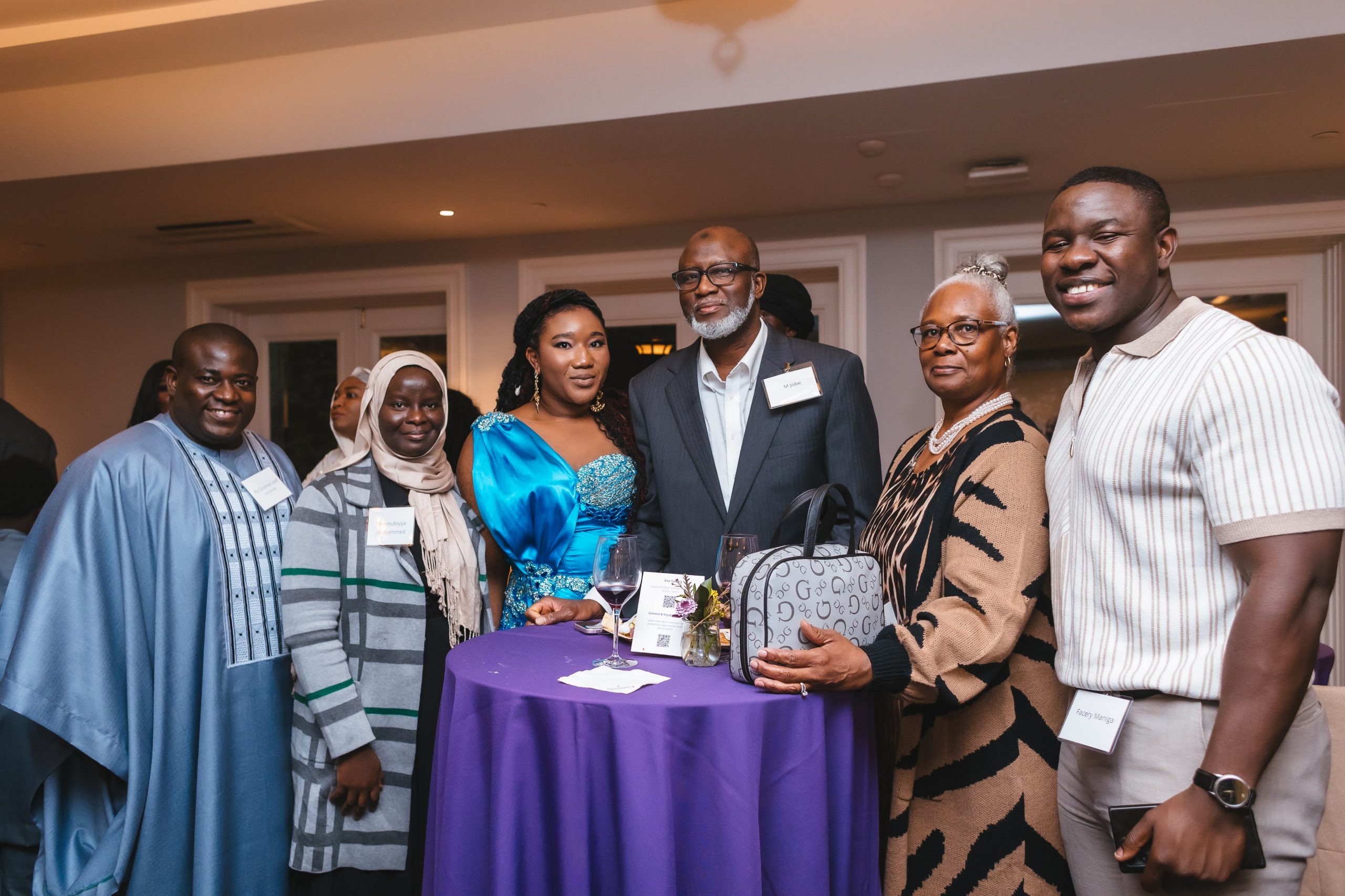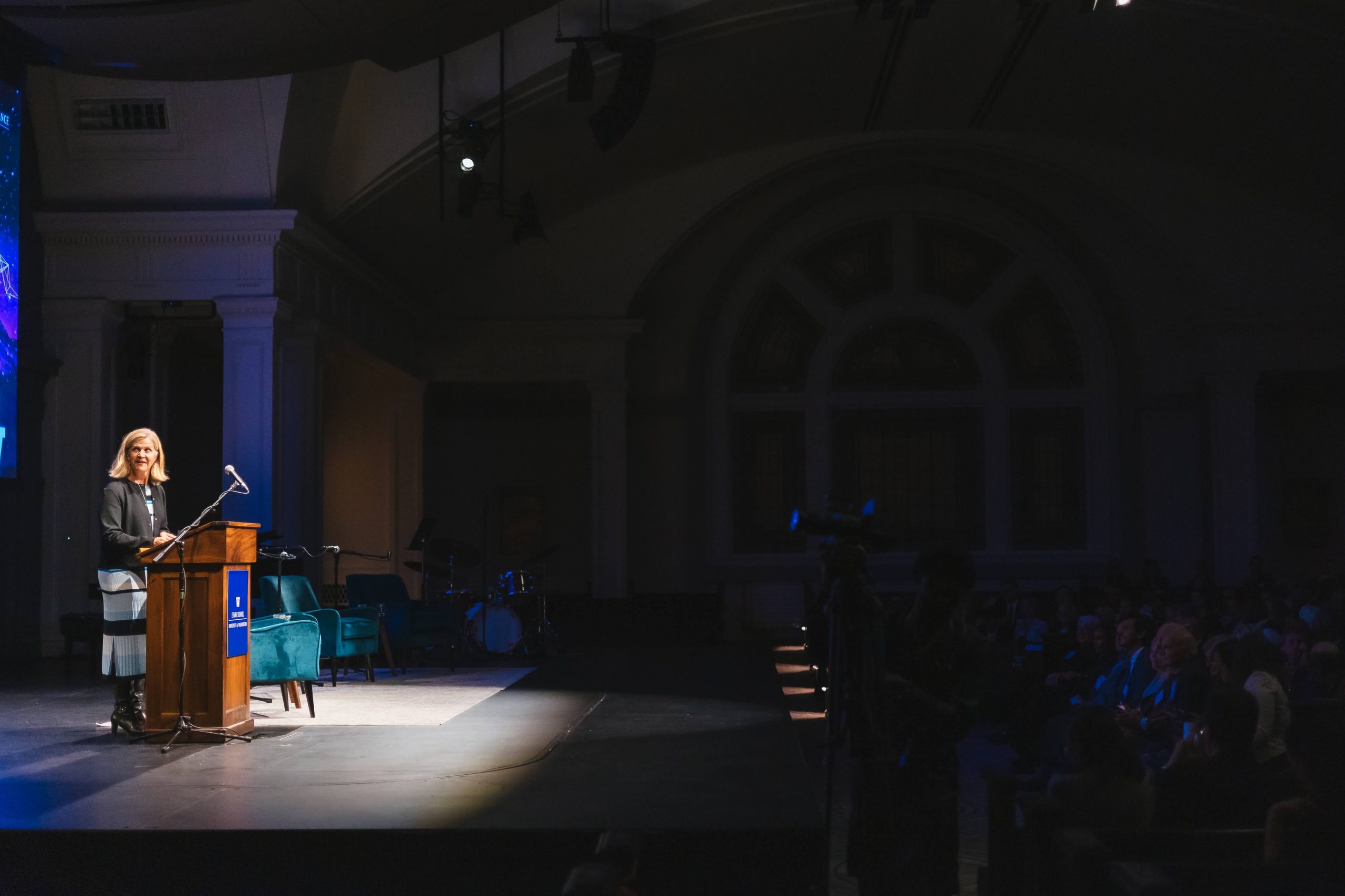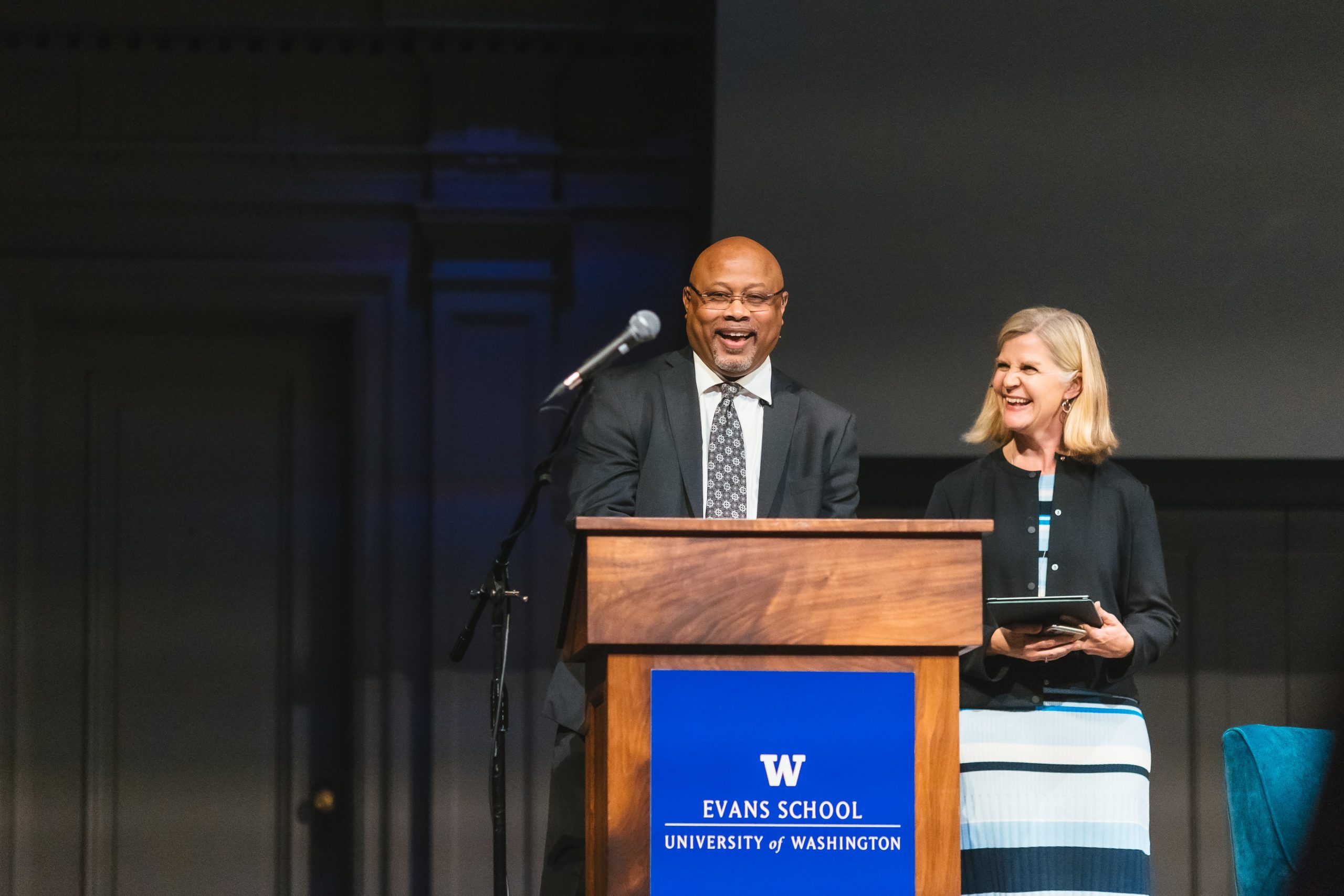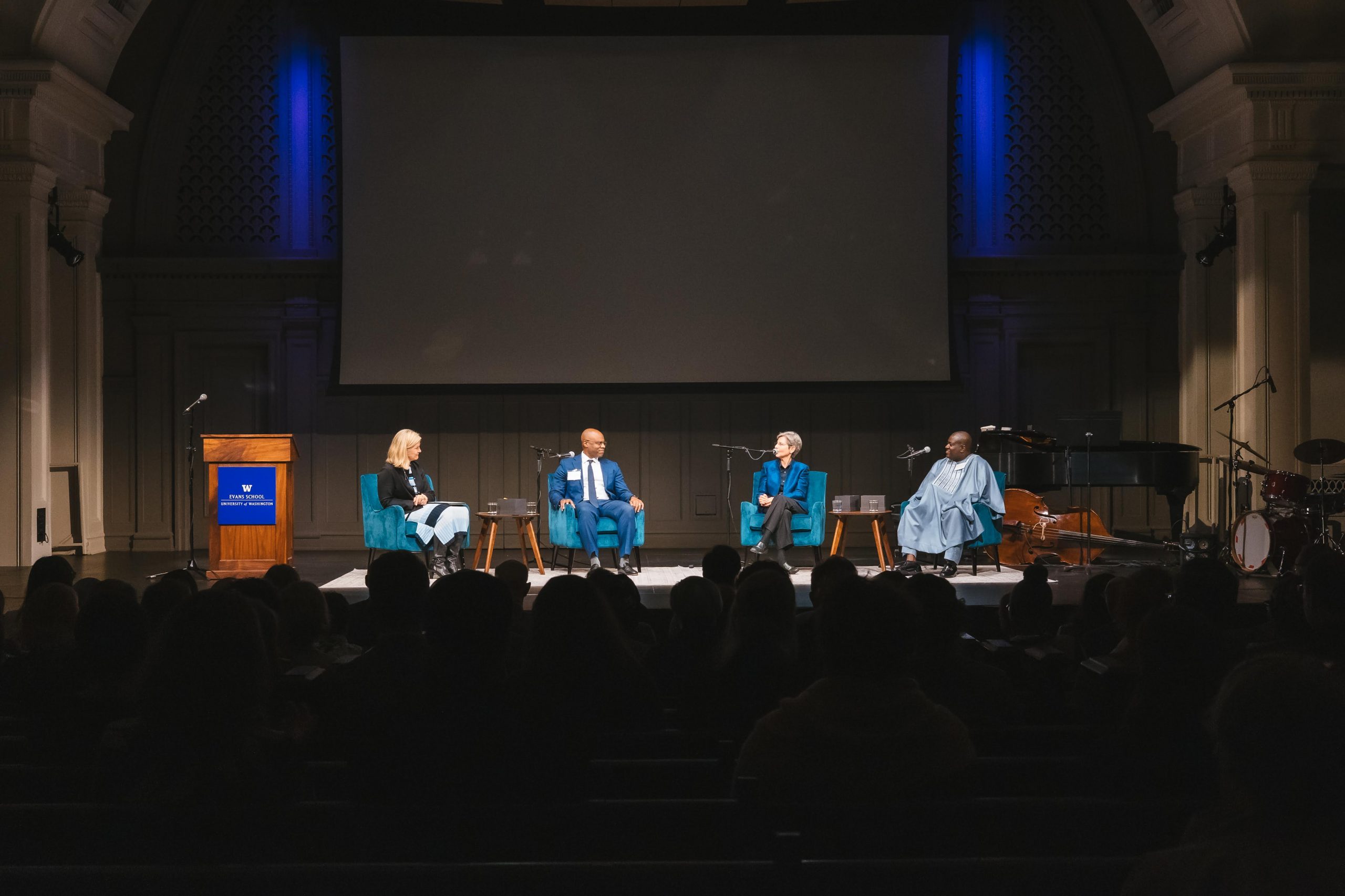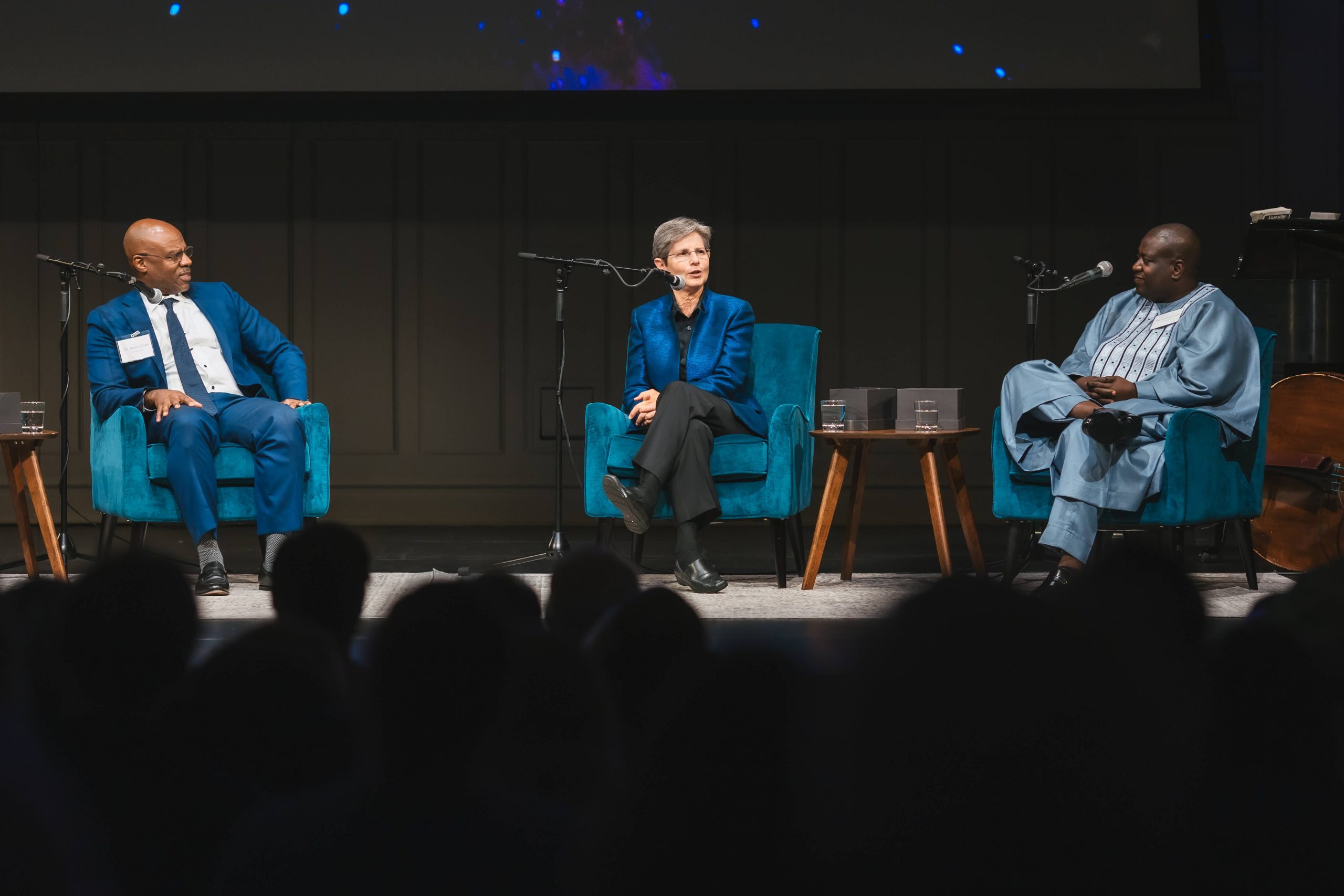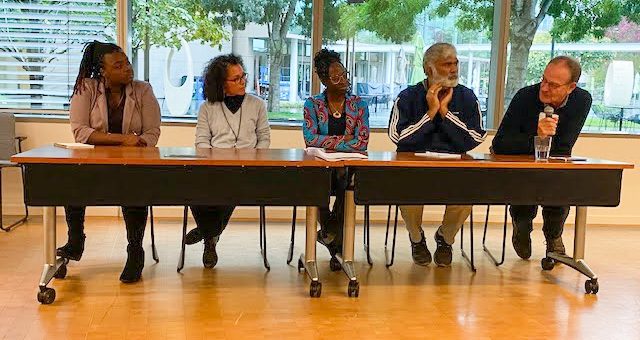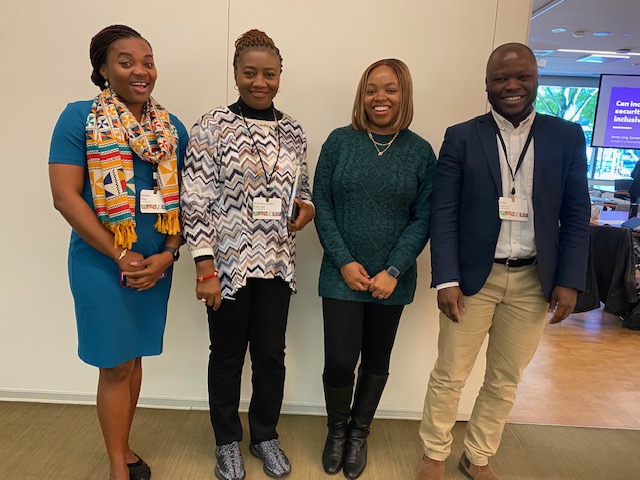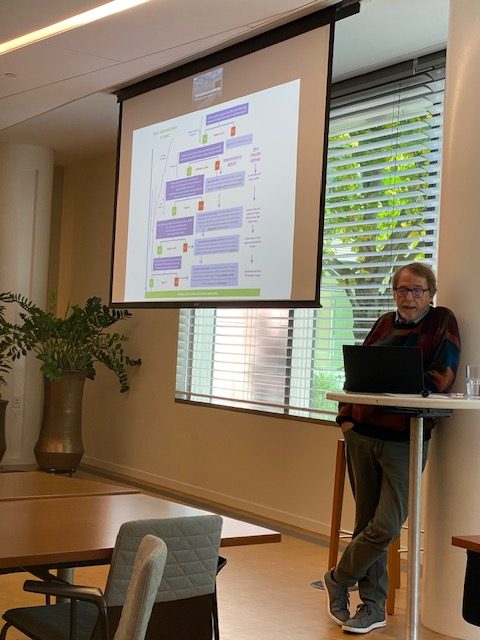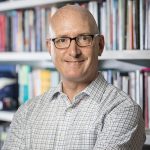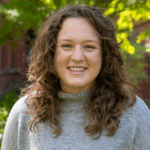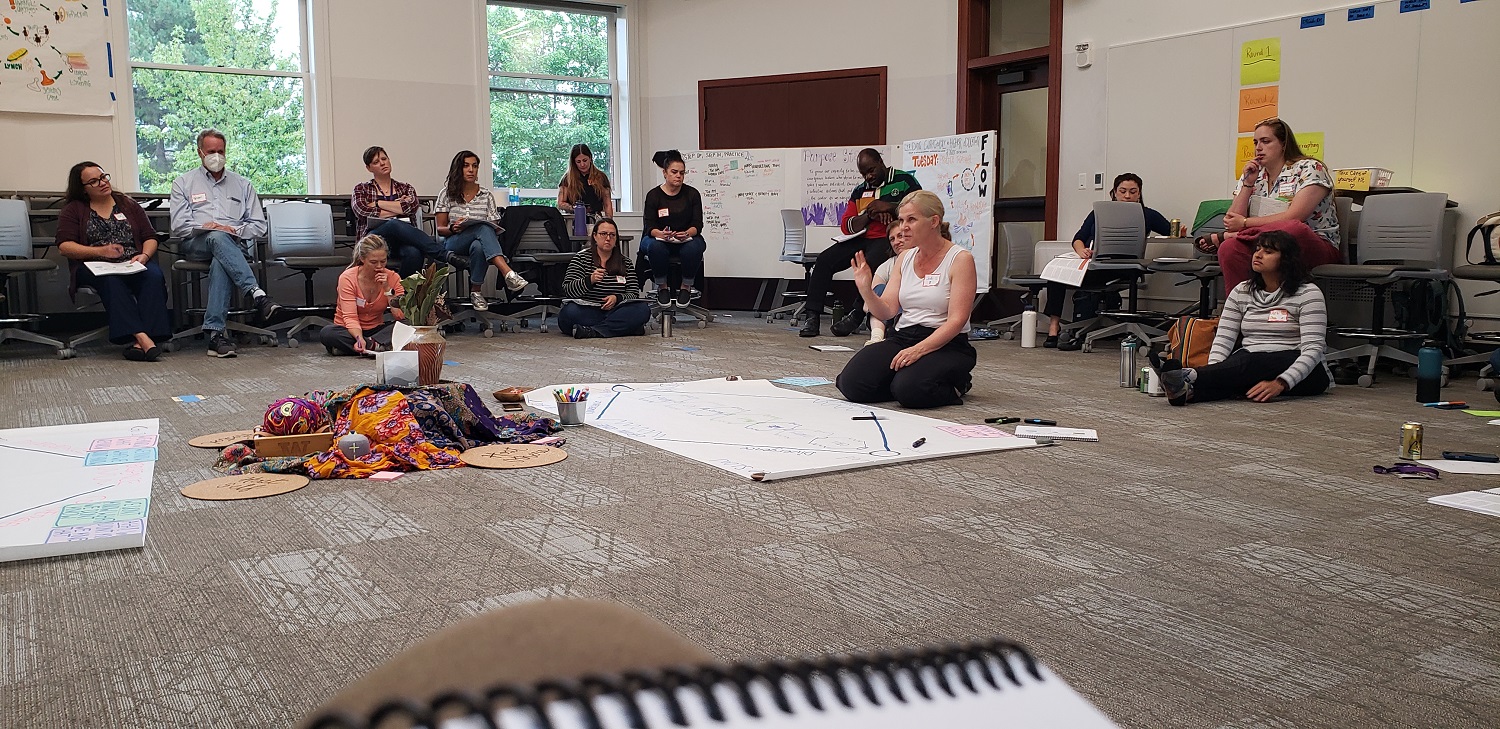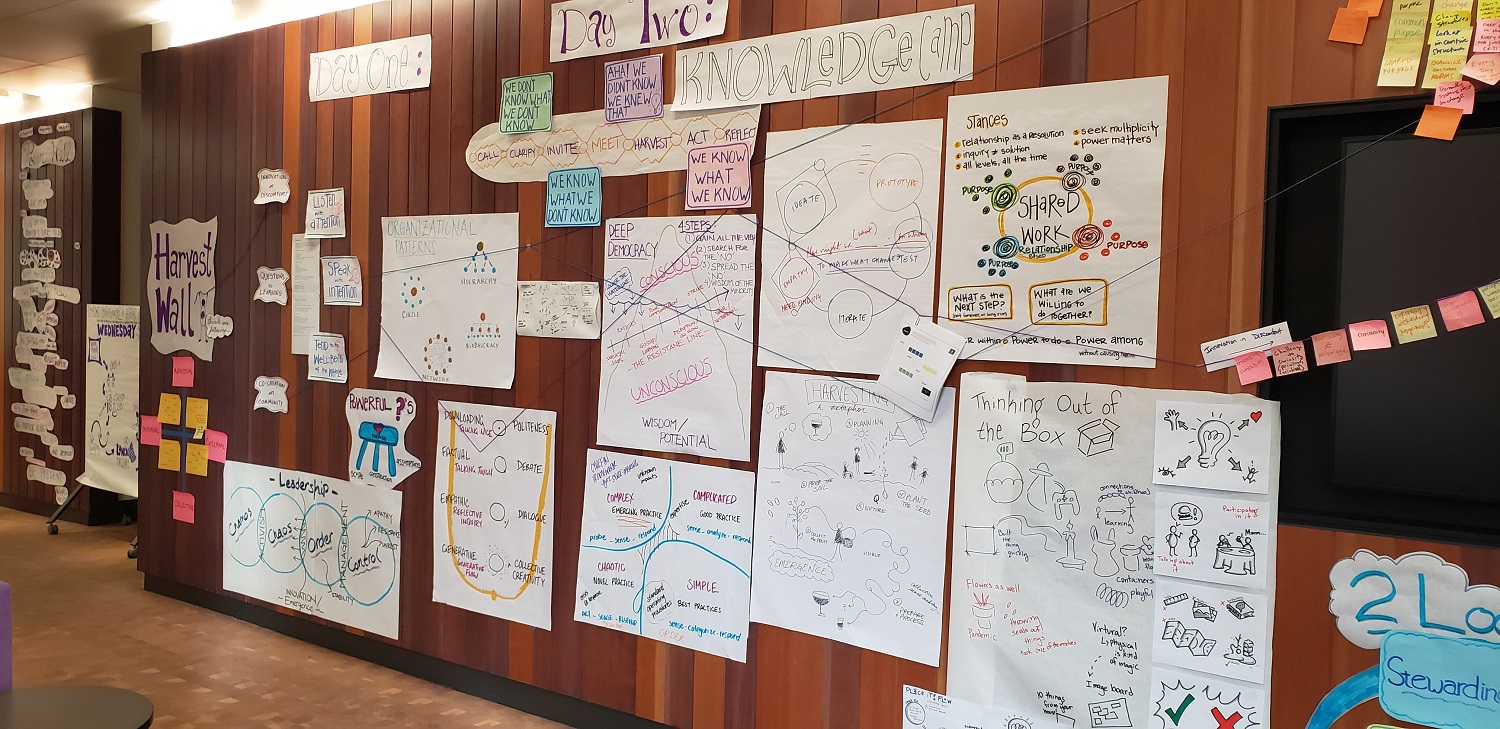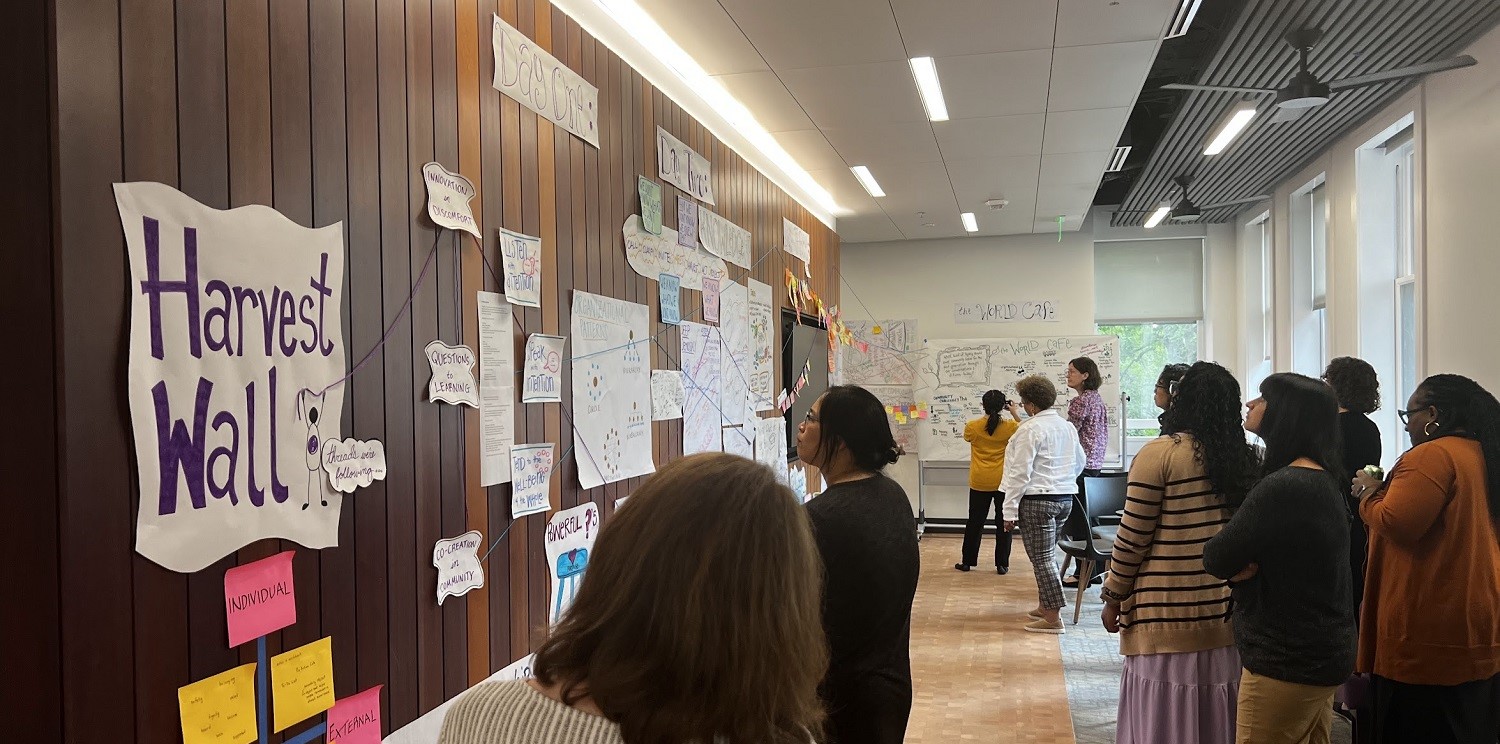Describe your journey towards pursuing your degree at Evans. What inspired you to pursue a career in public service?
Towards the end of my time on the UW baseball team, it became clear that I would not be able to pursue baseball as a career and I began considering what was next for me. Although I had two great internships at King County (thank you Leesa Manion!!), I realized I wasn’t 100% sold on going to law school.
Around this time, I took Dorothy Bullitt’s Leadership class in 2017 and she ended up becoming a mentor and has since remained a great friend. We would often talk about politics, civic engagement, public policy and what it would mean to operate across all of these spaces. She encouraged me to look deeply at the Evans School program and as I did, I started shifting academic focus towards economic policy and opportunity building. Along with this shift, my long-standing interest in social impact and my desire to serve within my community is what ultimately led me to commit to Evans. The Evans curriculum centered around themes addressing systemic issues that have led to the degree of economic disparity we see today – this shaped my focus on how I can help close this gap to serve communities long-term.
Describe your journey to the work you’re currently doing and how your MPA helped you get there.
The journey started with my Evans internship, which focused on social impact with Tableau and Tableau Foundation. This internship gave me experience in grantmaking, project/program management, and an understanding of technology for good that allowed me to learn and grow as a professional and leader. I joined Tableau Foundation after graduating from Evans. Much of my work focused on partnering and collaborating with organizations that were heavily focused on combatting issues that spurred the beginning of the 2020s, such as racial, economic, and educational equality, and criminal justice.
After a few years of growth and organizational changes, I pivoted and wanted to learn and work more closely in the impact investing space. Impact investing focuses on providing avenues for directing capital towards efforts and innovation that provide benefits for larger society through efforts in sustainability, climate, education, and economic opportunity building, especially at scale. This is an industry and space that I believe will play a pivotal role in society going forward by helping to provide a sustainable and equitable future for all.
I understand that my current role with Salesforce Ventures may not be a typical role where most folks with an MPA may find themselves. But I find it fascinating, especially given the AI innovation we’re seeing. Understanding how these monumental developments will need to be regulated, made accessible, and ultimately used for good is a huge focus for our team and Salesforce at large and something that evolves daily.
You were involved in leading efforts in student interest groups like the Black Student Athlete Group and EPOC (Evans People of Color). Can you share more about your experiences being a part of these groups as a student?
Along with other student-athletes, I was a part of starting the Black Student Athlete Group during my time in undergrad, and it’s great to see it is still thriving at UW. As a grad student, I was drawn to fellow classmates who were also passionate about demonstrating a commitment to diversity through our work and leadership on campus, and that led me to become a part of Evans People of Color (E-POC).
As a member of E-POC, I was able to play a part in helping to organize the UW Evans School Coalition Summit on Race and Equity. It was exciting and energizing to see our community come together to discuss tangible policy and community solutions to the critical issues we’d learned about at Evans and were watching play out in real time. The Summit provided an opportunity for us to learn from experts in the field, share our own experiences, and network with leaders focused on addressing the racial, economic, and educational disparities being perpetuated throughout communities. It was great getting to collaborate with my fellow classmates and see many of their respective lights shine through their leadership, and it seemed to foreshadow of a lot of the amazing work that Evans folks are pursuing today.
The Evans School’s values are equity, courage, and service. In what ways have these values shaped your time as a student?
In general – these are all values that are core to how I aim to show up in everything I do, and have kept me inspired and energized as I wake up every morning. Through the early stages of my career, my role was specifically focused on working with organizations across the country whose missions centered around these themes and more. During my time with Tableau Foundation, we were focused on building and expanding the equitable use of data/data tools. This framed our partnerships with organizations, who were on the ground working with communities to combat injustice and inequity. My time at Evans prepared me to look at every part of my work through the lens of equity, courage, and service. Regardless of what rooms I enter or paths that I will navigate through my life and career, equity, courage, and service are a part of the few constants that I hope will always shine through my actions and energy.
